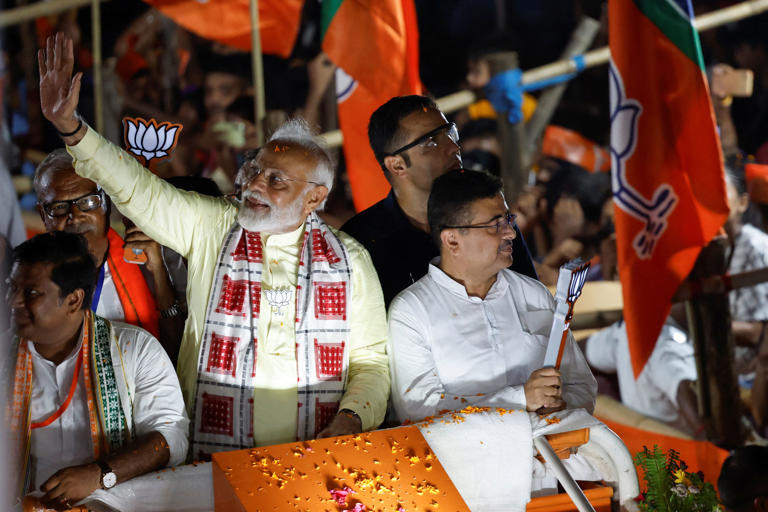Indian voters have dealt Prime Minister Narendra Modi and his Bharatiya Janata Party (BJP) a surprising blow, as the party fell short of securing a majority in the 2024 parliamentary elections.
Despite finishing first, the BJP’s performance pales in comparison to its decisive victories in 2014 and 2019. This time, the BJP is projected to win around 240 seats, falling short of the 272 needed to form a majority in the 543-member Lok Sabha, necessitating a coalition government with allies.
The unexpected results have invigorated India’s opposition parties and signal a rare setback for Modi, who has consistently secured majorities in both state and national elections over his 23-year career.
As Prime Minister for the past decade, Modi has crafted an image of a strongman leader and a serial winner. Most political analysts had anticipated another easy victory for Modi, given the fragmented and underfunded state of the opposition.
In the run-up to the election, the Modi administration took significant measures to curb the opposition, including freezing their bank accounts, imprisoning leaders on corruption charges, and leveraging supportive mainstream media. These actions had raised concerns domestically and internationally about the competitiveness of India’s elections.
“This electoral surprise shows that voters still have an independent mind. Otherwise, this juggernaut would not have stalled,” said Devesh Kapur, a political scientist at Johns Hopkins University.
The reliance on coalition partners in the third term could act as a check on Modi’s power, Kapur added. “There will now be more checks and balances if the opposition has wind in its sails.”
Modi remained defiant, emphasizing his leadership as essential for India’s progress in the 21st century. He pledged to form a new government and work with smaller parties, vowing to intensify his fight against what he described as the corrupt opposition.
The results also had immediate economic repercussions. Indian stocks fell sharply, with companies led by Modi ally Gautam Adani losing significant value.
“The entire party structure is built around advertising around him, but the challenge this time was that they weren’t able to come up with a set of issues that they could tie around Modi,” said Neelanjan Sircar, a political scientist at the Center for Policy Research in New Delhi. The government “overreached,” he added, and “some red lines were crossed.”
In the campaign, Modi and his allies projected supreme confidence, with the BJP’s campaign heavily focused on Modi’s personal appeal. However, the strategy backfired as voters in key regions, including the Hindu heartland, appeared to reject his divisive rhetoric. The BJP lost critical districts, and opposition parties made significant gains.
The setback could hinder Modi’s ability to advance his legislative agenda, including proposed electoral and labor reforms. Despite this, analysts believe the strategic partnership between New Delhi and Washington will remain robust.
“U.S.-India remains the most consequential relationship that India has,” said Indrani Bagchi, chief executive of the Ananta Aspen Center.



